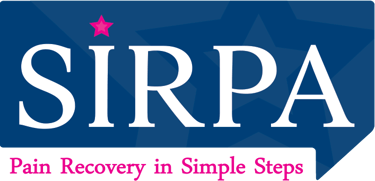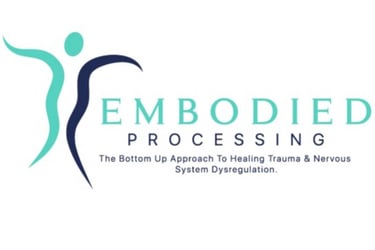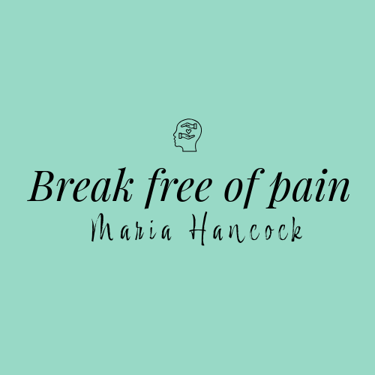Frequently asked questions - general
My pain is so severe - surely there must be something physically wrong for me to be in this much pain?
Our bodies are far more resilient than most people think. In fact, numerous studies over the past two decades have found little evidence linking poor posture, structure, or biomechanics to musculoskeletal pain. Chronic pain is primarily driven by our body’s automatic, unconscious, and primitive survival response to perceived threats. While we may not encounter life-threatening situations as often today, our central nervous system still works to protect us. The greater the perceived stress or threat, the more intense the response - manifesting as pain.
My MRI scans showed that there is some degeneration, so how can you say that this isn’t causing my pain?
There are numerous studies demonstrating that just as many people who don’t have pain have degeneration. This is a normal sign of ageing and rarely linked to pain. Take a look at these studies.
I was stressed when my pain started, but I’m not now and yet I can’t get rid of the pain. Why is that?
Unfortunately, the fear and frustration caused by pain and the struggle to recover can keep the pain cycle going. Over time, the nervous system becomes more sensitive, making the pain response easier to trigger. To break this cycle, it’s important to use strategies that help retrain the nervous system while also identifying and addressing any underlying triggers, both past and present.
When my pain came on I wasn’t feeling stressed, so maybe my pain is real?
Your pain is real, even if it has an emotional cause. If serious conditions like cancer, infections, fractures, or autoimmune disorders have been ruled out, chronic pain is almost always linked to stress. This is incredibly common but often misunderstood. Sometimes, pain is triggered by an event you don’t consciously remember—perhaps an old emotional memory or an issue your brain perceives as ‘dangerous’ or ‘inappropriate.’ In response, your nervous system activates a survival mechanism, creating pain as a form of protection. By understanding these patterns, you can begin to break free from the cycle and regain control.
I hurt my back a while ago and the pain never went. Surely I must have damaged it and that’s why it’s no better?
Even if there was an injury, it would have healed within weeks rather than lingering for months. We now understand through recent science that it is more likely that there was some inner conflict at play when the pain started. Perhaps you felt resentful, the activity triggered an unresolved past issue, or you were overwhelmed with everything else going on in your life.
I have tried every treatment you can think of, but I still have pain. How do I know that you can help?
I have been there and it is frustrating! Firstly, no treatment works for everyone as we are all unique. However, this work addresses the real cause of your symptoms and the Boulder Back Pain study found 66% were pain free or nearly pain free with a mind-body approach, so we know this work can be very affective. Some people need to understand the concepts and apply them on their own, while others benefit from support and guidance from an experienced practitioner. The key is finding the approach that works best for you.
I have a really busy life and am not sure that I will be able to commit much time. What do you suggest?
The fact that you're so busy may well be one of the causes of your pain. If we don’t take time out to unwind, our body may find other ways to release built-up stress - often through pain. Many strategies I teach can fit easily into your daily routine. However, if you don’t allow yourself any time to pause within a hectic schedule, progress may be limited.
I have a situation that is causing me enormous stress and there is no way out of it, so if my pain is stress-induced how can you help me?
Feeling disempowered and unable to see a way forward can make things even more challenging. This sense of inner turmoil can actually fuel pain, creating a cycle that feels hard to escape. However, it’s important to remember that stress is said to be only 10% about what happens to us and 90% about how we respond. The goal of our sessions is to help you navigate life with less resistance. I provide practical strategies for managing ongoing stress, helping you break free from the pain-stress cycle and regain control of your well-being.
Frequently asked questions - sessions
What happens during sessions together?
Your initial session is a deep dive into understanding your pain, symptoms, mental health, lifestyle, personality traits, past and present stressors, support system, and family history. This comprehensive approach helps me identify the underlying causes of your pain and tailor a plan specifically for you.
Each week, we’ll review your progress—celebrating what’s working and addressing any new challenges or stressors. Through guided problem-solving and practical strategies, I’ll equip you with effective tools to manage pain, stress, and everyday life with more ease. For example, I may guide you into developing your felt sense, somatic tracking, a mindfulness technique, visualisation, hypnotherapy or rationalise thoughts. It is a colaborative approach, so you are involved each step of the way.
Are there any prerequisites to working with you?
Yes. You must have a good understanding of the science behind this work. This is because it is essential to the success of recovery. Therefore, I ask that everyone has at least read one book on the subject - see my resources list for book recommendations.
I'm not based in the UK, so how does it work?
No problem! I am insured for international clients and can work online (using Google Meet). We just have to schedule times around the time-zone difference.
I have anxiety and depression. Is this suitable for me?
I have experience working with clients who struggle with anxiety and depression, and I always assess this during the initial consultation. If you have moderate to severe depression, it may be beneficial to seek treatment for this first to ensure you can fully engage with the approach. I work with individuals experiencing mild to moderate depression. If your depression is more severe, I can recommend other practitioners to support you initially, and I strongly encourage you to consult your GP or a mental health professional for additional guidance.
What difference will it make working with you, as opposed to by myself?
I understand how isolating it can feel doing this work with no help or understanding. You don't know if you're doing things right, or the tools don't seem to be working for you. My job is to support you with the right guidance for your unique journey and to find your blind-spots. We work together and celebrate your wins and learn from any perceived failures (which are not failures btw, but instead feedback!).
Support from a coach was essential in my healing journey, and I would love to be there for yours!






TMS, PPD, Mind-Body Syndrome, Perceived Danger Pain, Neuroplastic Pain Syndrome, Chronic Pain Recovery Practitioner in Horley, Surrey, UK and Online Internationally. (English speaking only).
